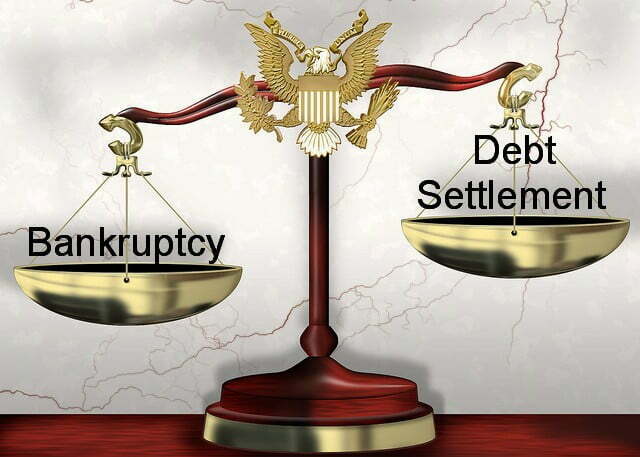As the nation recovers from last year’s public health crisis, the financial fallout is prompting review of federal and state laws regarding debt and bankruptcy.

Many Americans are still recovering from the struggle to pay rent and other bills during quarantine, while COVID patients will start to see staggering medical bills hit collections in 2021 and stack on top of existing debt.
For these reasons, we can expect to see a spike in personal bankruptcies by the end of this year. If these issues are affecting you or someone you love, keep reading for a breakdown of debt and bankruptcy laws by state.
How is debt collection managed under federal law?
If you have accumulated significant debt, there are a number of stressors that accompany repayment beyond procuring the dollar amount. In some cases, debt collection agents are insistent or even abusive to the consumers they contact; luckily, there are laws in place to help control those behaviors.
In the U.S., all states are covered by the Fair Debt Collection Practices Act (FDCPA). The FDCPA prohibits bill collectors from engaging in unfair or deceptive collection tactics. For example, many debt collectors will make numerous calls, lie about the amount owed, make threats, ignore requests to stop contact, or even call uninvolved third parties in attempts to locate or intimidate the consumer. Under the FDCPA, these actions are illegal.
In short, yes. Many states have their own debt collection laws that supplement the FDCPA by offering more protection to consumers, prohibiting unfair acts from creditors, and specifying more damages and unlawful behaviors.
For example, California’s debt collection law—the Rosenthal Act—is one that extends protection to creditors in addition to consumers. The Rosenthal Act even clarified and extended the definition of what a “debt collector” is, ensuring that any entity involved in the collection of debt is covered.
Alternatively, some state debt collection laws focus more closely on the consumer’s position. Georgia’s Industrial Loan Act provides additional protections for consumers whose loans amount to less than $3,000.
How is bankruptcy managed under federal law?
If your debt becomes unmanageable, you may decide to file for bankruptcy. Under U.S. law, there are different types of bankruptcies modeled for individuals and businesses. The Bankruptcy Code is broken down into chapters that describe the processes and qualifications for filing for bankruptcy under different circumstances.
For consumers, the most common types of bankruptcy are Chapter 7 and Chapter 13 bankruptcy.
. In either case, individual debts can be reorganized and repayment timelines can be altered to better suit the consumer’s situation.
Are there state bankruptcy laws?
Almost every aspect of bankruptcy is governed by the federal Bankruptcy Code. However, each state has its own property exemptions. In some cases, consumers can choose the state exemptions instead of the federal exemptions to maintain some control over their remaining assets.
In California, consumers can’t choose between federal and state exemptions. Instead, they can choose between exemptions from Section 703 (which benefits new or non-homeowners) or Section 704 (for long-term homeowners). Similarly, some states opt out of federal exemptions and offer their own options. One example is Mississippi’s complex “homestead” exemption that varies greatly based on the consumer’s circumstances.
Educating yourself on federal and state laws regarding your debt situation and possible bankruptcy solutions is the best way to stay ahead of a seemingly unmanageable financial situation. With this knowledge, you can make smart decisions that support your financial wellness while everyone recovers from 2020’s harsh blows.
The Amalfi Coast, a stunning stretch of coastline along the southern edge of Italy’s Sorrentine…
In today's competitive market, first impressions matter more than ever. When potential customers or clients…
Dealing with the aftermath of a car wreck lawsuit can be stressful and confusing. When you…
Have you ever wondered what makes crystal clear beaches the perfect getaway? These pristine shores…
In the modern workplace, the need for both collaboration and concentration has given rise to…
A motorbike excursion may be disastrous if anything goes wrong. However, they are exciting and…